
Loggia dei Lanzi Perseus, The Pedestal I. Benvenuto Cellini Bronze
Loggia dei Lanzi, Firenze:. Coordinate. Perseo con la testa di Medusa è una scultura bronzea di Benvenuto Cellini, considerata un capolavoro della scultura manierista italiana, ed è una delle statue più famose di Piazza della Signoria a Firenze Storia Il Perseo di schiena. Nell'antichità le statue in bronzo venivano.

Pin on Voyage en Italie
Benvenuto Cellini's bronze sculpture of Perseus and Medusa (1545-54), which stands under the left arch of the Loggia dei Lanzi, is one of the most beautiful works of art in Florence. The statue was commissioned by Duke Cosimo I de' Medici (r. 1537-74) and unveiled to the public on April 27th 1554. It illustrates the story of the Greek hero Perseus, who slew the monstrous Gorgon Medusa, whose.

loveisspeed....... Benvenuto Cellini’s 1545 bronze sculpture of
Perseus with the Head of Medusa is the famous statue by Benvenuto Cellini, found in Florence in piazza della Signoria, under the Loggia dei Lanzi, and one of the most important examples of Italian Mannerist sculpture.. Cellini, one of the greatest goldsmiths of the Renaissance, was commissioned by Cosimo I de' Medici to sculpt this work in 1545.. The subject is Perseus, standing over the.

Loggia dei Lanzi, restaurato il Perseo di Cellini la Repubblica
La Loggia fu costruita, sul lato sud della Piazza, tra il 1376 ed il 1381, da Benci di Cione e Simone di Francesco Talenti. Questa struttura veniva ed è, tutt'oggi, chiamata Loggia dei Lanzi, in quanto nel 1527 vi si accamparono i mercenari lanzichenecchi di passaggio verso Roma.La costruzione era chiamata anche Loggia dell'Arcagna, perché si pensava erroneamente che i lavori fossero stati.

Pin on Pinturas, esculturas, arquitectura y diseño creativo
Il Perseo con la testa di Medusa è una scultura in bronzo realizzata da Benvenuto Cellini tra il 1545 e il 1554, considerata uno dei più grandi capolavori della scultura di stile manierista in Italia. La statua si trova all'interno della Loggia dei Lanzi in Piazza della Signoria a Firenze e rappresenta una delle opere più note tra quelle che decorano la piazza.

Piazza Signoria Loggia Dei Lanzi The Statue Of Perseo By Benvenuto
Book This Popular Hotel in Noci, Italy Today. Book Hotel Now - Free Internet, Free Breakfast, & Airport Shuttle Available.
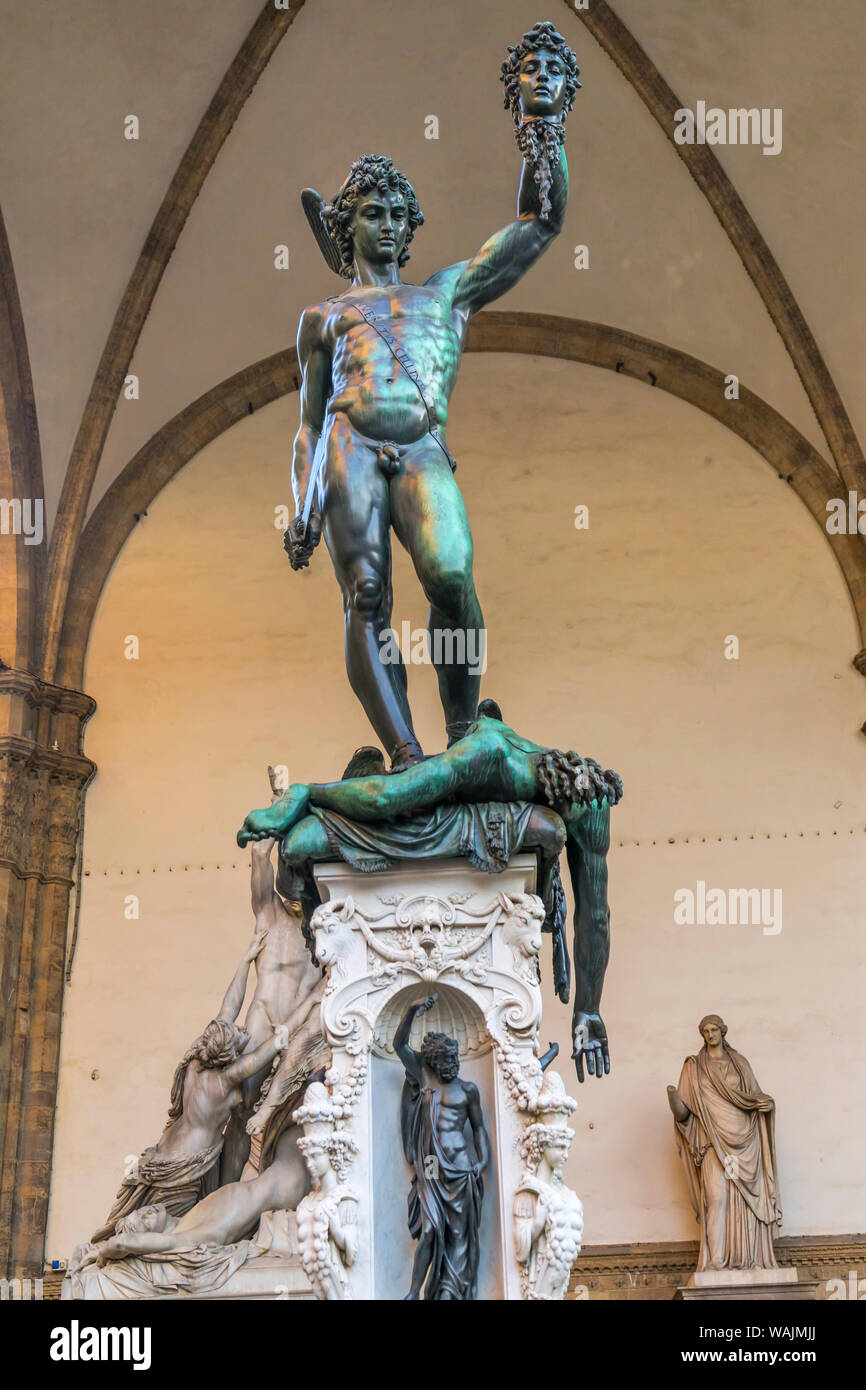
Estatua de Perseo con Medusa, Loggia dei Lanzi, Piazza della Signoria
They are presented here as documentation, not as a reflection of Getty's values. Language and societal norms shift, and we seek to reflect such changes as we update information made available online. Cataloging is a continuous work in progress, however, and we welcome your input to enhance our understanding and presentation of the collection.
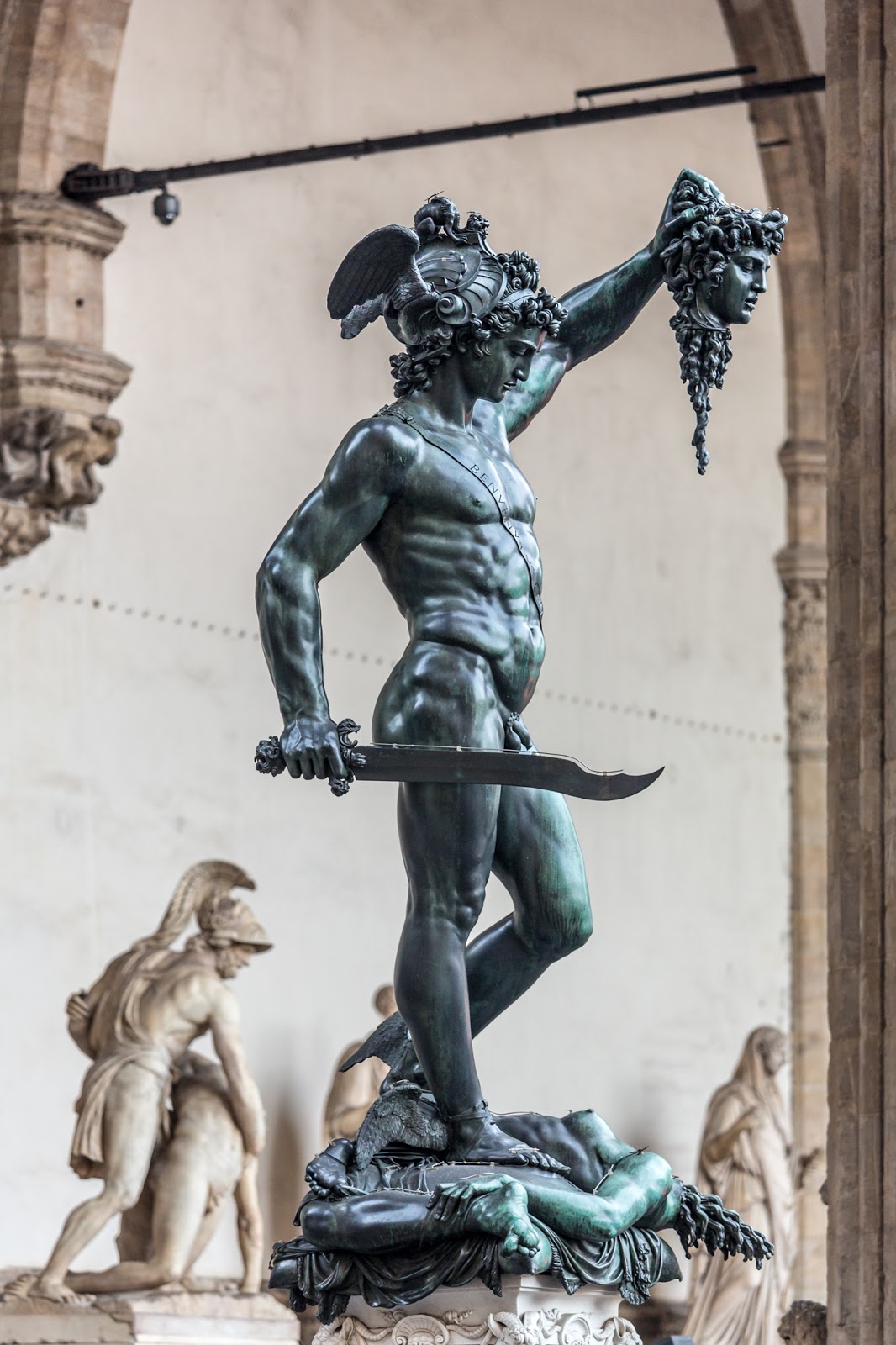
photoVaras Loggia dei Lanzi
Loggia dei Lanzi Tickets & Activities! Easy Book & Flexible Cancellation Policy.

a beautiful shot of stautue of Perseo, Loggia dei Lanzi, Florence
The Loggia dei Lanzi is an elegant arched gallery located in Piazza Signoria, adjacent to the Uffizi Gallery, in Florence. It's a distinctive feature of this handsome square, with an interesting history, and today guards a mix of statues from different eras, from antiquity and the Renaissance to the 19th century.This is a real open-air sculpture museum, that completes the art display hosted.
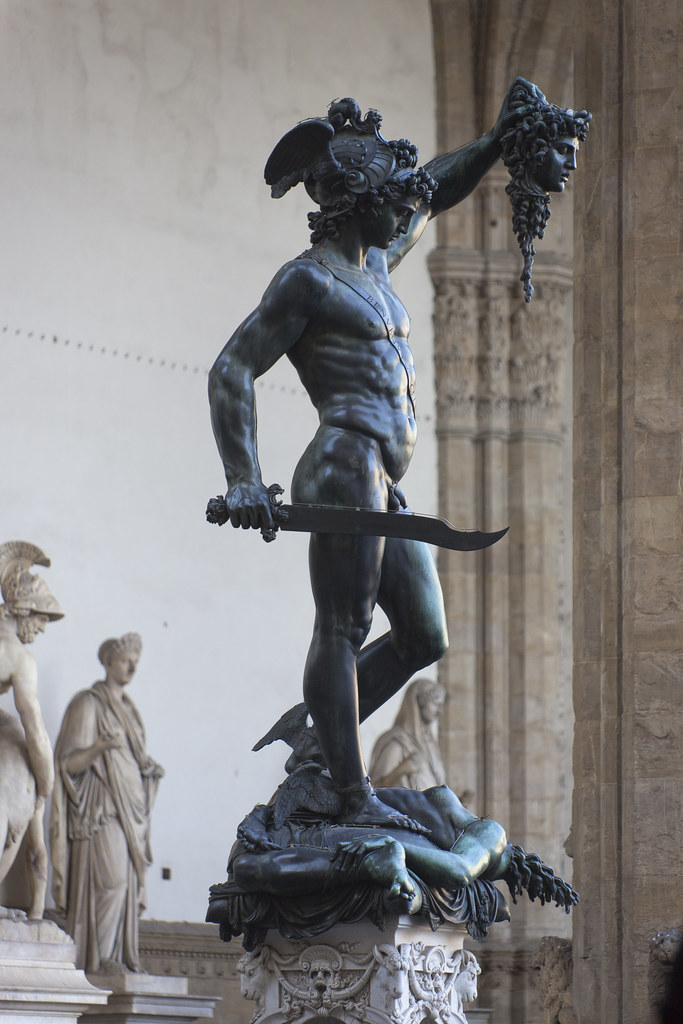
Benvenuto Cellini, Perseo Loggia dei Lanzi "Perseo con la… Flickr
Standing in the Loggia dei Lanzi of the famous Piazza della Signoria in Florence, Italy, 'Perseus with the Head of Medusa' is one of sculptor Benvenuto Cellini's most famous works. It depicts the dark and foreboding bronze of the Greek hero Perseus holding up the severed and bloody head of the gorgon Medusa, which gazes at the other statues around it as if she has turned them to stone.

Florence Loggia dei Lanzi (Piazza della Signoria) Perseo by Cellini
The Loggia dei Lanzi. The graceful Loggia dei Lanzi, which sits to the right of Palazzo Vecchio and functions as an open-air sculpture gallery, was designed by Orcagna in 1376. Its curved arches foretell Renaissance classicism. The statue of Perseo holding Medusa's head, by Benvenuto Cellini (1554

"Statue Of Perseus In Loggia Dei Lanzi, Florence" by Stocksy
The Loggia dei Lanzi is a beautiful arched gallery that was built in the 14th century at the Piazza della Signoria right in front of the Palazzo Vecchio.. The Loggia: architectural setting and description. This building is formally called the Loggia della Signoria, but is often referred to as the Loggia dei Lanzi due to German mercenary guards (in Italian: Lanzichenecchi, corrupted to Lanzi.
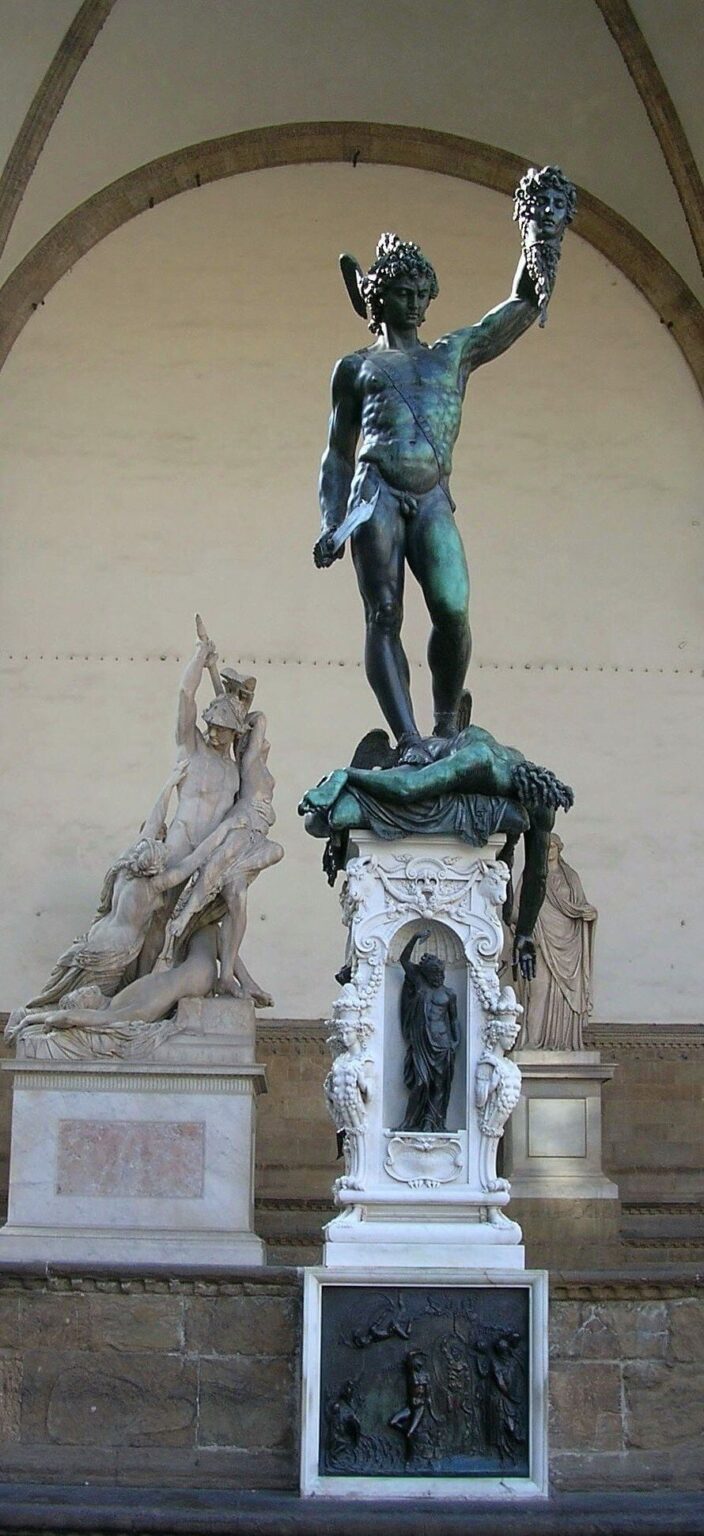
IL PERSEO DI BENVENUTO CELLINI Storia dell'Arte
In his memoirs, Cellini tells of the epic casting of the Perseus, describing it as a furious battle against the flames, in a feverish and heroic atmosphere. Created: 09 Aug 2013. Last update: 25 Jun 2023. The Perseus by Benvenuto Cellini is an extraordinary work of art, a masterpiece of the Italian manieristic sculpture and one of the statues.

Perseo, Benvenuto Cellini, 1545 1554, nella Loggia dei Lanzi, Firenze
La Loggia de' Lanzi. Cristian Spadoni ci introduce in uno spazio espositivo straordinario che ospita sculture di eccezionale valore, come il Perseo di Benvenuto Cellini. Video Storie. Vedi tutti i video. Video Storie. La mia sala.

Benvenuto Cellini Perseus with the Head of Medusa, 1554 Tutt'Art
Among the statues present today in the Loggia della Signoria or dei Lanzi, the Perseus by Benvenuto Cellini is probably the most important and extraordinary work from an artistic and technical point of view.. Cellini, reproduced in the posterior side of the helmet of Perseus his bearded self-portrait and on the Perseo's shoulder-belt, he.
"Perseus with the head of Medusa" by Benvenuto Cellini in 1545
The Loggia dei Lanzi, also called the Loggia della Signoria, is a building on a corner of the Piazza della Signoria in Florence, Italy, adjoining the Uffizi Gallery. It consists of wide arches open to the street. The arches rest on clustered pilasters with Corinthian capitals. The wide arches appealed so much to the Florentines that.